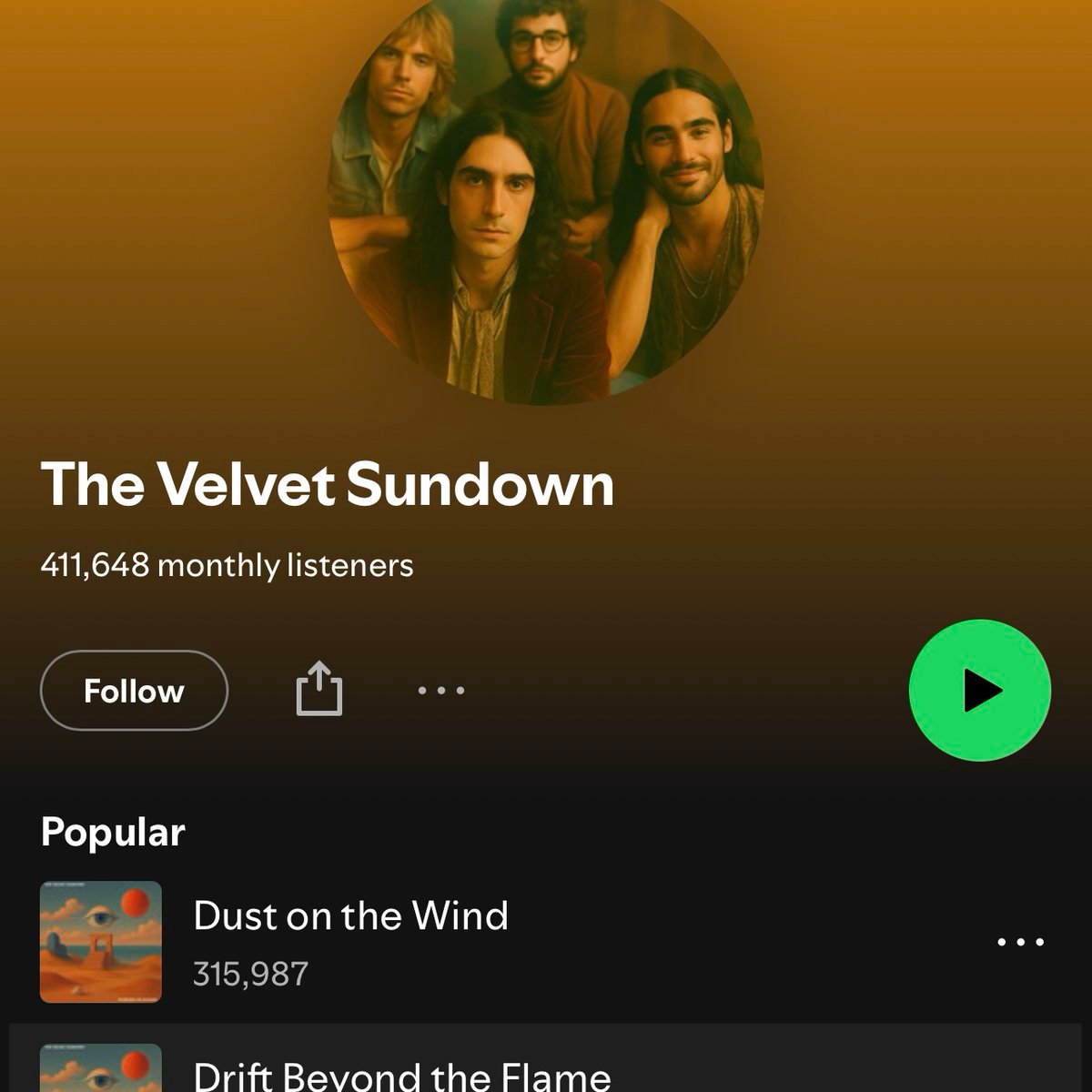Part I: The Phantom Bands
The strategy of today’s AI-generated musical artists is not simply to exist, but to mimic and infiltrate. They create plausible facsimiles of existing genres, engineered for seamless, unnoticed integration into the digital soundscape. This section explores the tangible examples of this phenomenon.
The Velvet Sundown
The “band” appeared suddenly on major streaming platforms with no prior digital footprint. Its purported members were found to be non-existent, and its imagery bore the tell-tale signs of AI generation. Despite this, the band garnered enough streams to expose a massive loophole in the streaming economy: a completely fake entity could successfully divert revenue from real artists.
Comparative Streaming Impact
Part II: The Dream Factories
The explosion of AI music is powered by a burgeoning ecosystem of generation platforms. This market has split into two camps: legally fraught “disruptors” trained on unlicensed data, and legally compliant “enablers” providing royalty-free tools. Explore the landscape below.
Part III: The Reckoning
The unchecked proliferation of AI music has ignited a legal and economic firestorm. The core conflict stems from the “original sin” of how AI models were trained, creating crises in copyright, royalty payments, and streaming fraud.
A Tidal Wave of Content
AI has enabled a new, sophisticated form of streaming fraud. By generating vast catalogs, bots can stream each track just a few thousand times, flying under the radar of detection systems. Experts call this a “billion-dollar problem,” draining massive revenue from the legitimate music industry.
Copyright Conundrum
The U.S. Copyright Office has ruled that works generated entirely by AI cannot be copyrighted due to a lack of human authorship. This leaves much of the AI music in a legal black hole, with no clear owner or protection.
Artist Pushback
The Artist Rights Alliance, backed by over 200 major artists, is demanding Consent, Compensation, and Credit for any use of their work in AI training, leading to new laws like Tennessee’s ELVIS Act.
Daily Uploads on Deezer (April 2025)
A staggering 18% of all tracks uploaded daily are AI-generated.
Part IV: The Gatekeepers’ Dilemma
Major streaming platforms are the ultimate arbiters in the battle over AI music, yet their responses have been inconsistent and often contradictory, driven by their unique business models and strategic interests.
Conclusion: The New Duet
The future of music is not one of replacement, but of collaboration. The human artist’s role evolves to that of curator, creative director, and arbiter of taste, providing the intent, emotion, and experience that AI lacks. A sustainable path forward requires industry consensus on transparency, clear legal frameworks for copyright, and a commitment to the principles of Consent, Compensation, and Credit. This is the only way to ensure the ghost in the machine serves as a muse, not an executioner.
Click here to access our entire comprehensive report, including all References!
